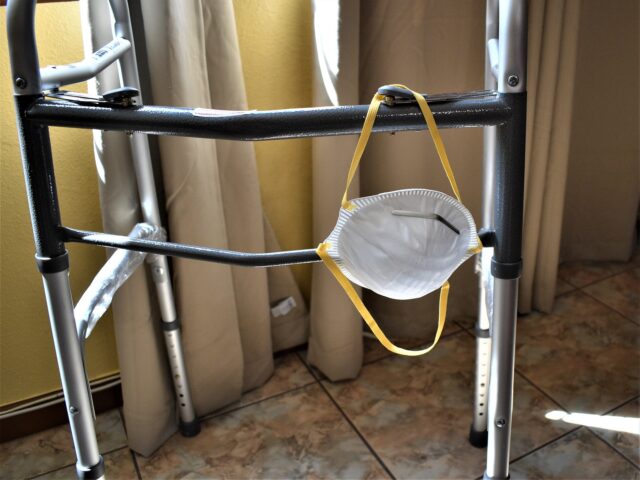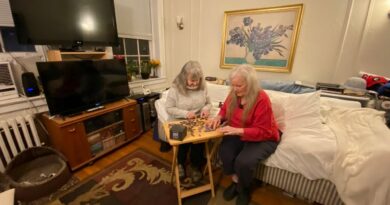Covid-19: New rules, licenses coming for assisted living home care providers – The Circle News
By Lee Egerstrom
New protections for elders and others residing in long term assisted living-type facilities are coming on Aug. 1 along with new requirements and licenses for home care providers and their staffs.
The stepped-up requirements and licensure for assisted living facilities come about from a 2019 Minnesota law passed well before the COVID-19 coronavirus hit and further showed vulnerabilities for residents in these homes.
The change in law doesn’t affect Native families and others who often care for elders and family members with special needs within their homes, state Health officials said. But commercial care providers will have new requirements to make their homes safer and healthier for their residents.
Long-term care providers were to have informed the Minnesota Department of Health (MDH) by the end of May what their plans were for providing care beginning in August.
In the process, they were to seek and receive training for two new licenses. One is an Assisted Living License and the other a new Assisted Living License with Dementia Care. They replace a combined Comprehensive Home Care license and a Housing and Services registration with the state.
In reminding residents, their families, and assisted living care providers of the forthcoming changes, Minnesota Health Commissioner Jan Malcolm said residents and families should confer with providers to learn if there are any changes coming to care after the new law is in effect.
“We are working with providers to make sure residents get all the information they need in a timely fashion, but it’s a good idea for residents and families to have these discussions with providers and ask questions now so they are prepared to manage any possible changes,” she said in a statement.
The Minnesota Department of Health estimates 60,000 Minnesotans live in 1,800 assisted living homes that mostly house senior citizens. Many residents have health conditions – the reason they are in assisted living facilities – that make them especially vulnerable to diseases. That became evident with the pandemic that swept Minnesota and the nation over the past 13 months.
State records change daily and details on locations of residences are incomplete. But 3 percent of Minnesota diagnosed COVID cases by late May were attributed to these homes, a number disproportionately high for the population base.
Care provider and advocate groups for the elderly joined in on a state-issued statement showing support for the forthcoming changes in Minnesota’s assisted living license and training requirements.
Referring to the 2019 law passed by the Legislature, Patti Cullen, president and chief executive of the Care Providers of Minnesota organization, specifically noted it was done before the health crisis of the past year.
“No one contemplated then then that we would be crafting the rules for this new framework in the middle of a pandemic, which has made the transition more complex with less time to prepare,” she said.
Ethnic groups, including Minnesota’s Native communities, are known for commonly providing care for intergenerational family members. These in-home family arrangements should not change, said Lindsey Krueger, a Registered Nurse and a program manager for the assisted living programs at MDH.
The new law specifically exclude several family and other group homes and lodging arrangements, and housing facilities covered by a variety of other state and federal laws.
One such exception that would include most Native family care arrangements identifies “a private home in which the residents are related by kinship, law, or affinity with the provider of services,” Krueger said.
Another exemption that would also affect housing programs for Natives, especially in urban settings, include “emergency shelter, transitional housing, or any other residential units serving exclusively or primarily homeless individuals…”
Others include various licensed nursing homes, hospitals, certified boarding care and supervised living facilities licensed under laws; licensed lodging establishments, other services and residential settings – including adult foster care – that are licensed under law; and a variety of other housing ownership arrangement and programs assisted by other state and federal programs.
MDH is working with families and health care providers to make sure long term assisted living facilities are in compliance by Aug. 1, Krueger said.
In addition, MDH is helping assisted living providers and their staff to get new required training to be operational when the new requirements go into effect, said Amy Hyers, an Assisted Living Licensure program supervisor.
For instance, she said, homes with a dementia services ward will need to keep a trained person in the ward at all times and not leave to provide assistance elsewhere in the facility during that time. This is a requirement of the new Assisted Living with Dementia Care License, she said. It will make such facilities safer places for residents with special needs.
State officials encouraged families and assisted living care residents to discuss with care providers what changes in services may occur beginning in August. Such discussions should include whether new housing arrangements should be made in the coming two months.
Changes in services that might impact assisted living residents include such things as assisting with dressing, self-feeding, oral hygiene, hair care, grooming, toileting and bathing; standby assistance and medication services, hands-on assistance with transfers and mobility; and treatment and therapies.
Preparing for the new law changes has been a work in progress for both health officials and the long-term care industry. Cullen, from the Care Providers organization, said her members “are fully committed to the successful implementations of the new assisted living rules in our communities.”
More information on the Assisted Living Licensure requirements can be found at https://www.health.state.mn.us/facilities/regulations/assistedliving/index.html.






